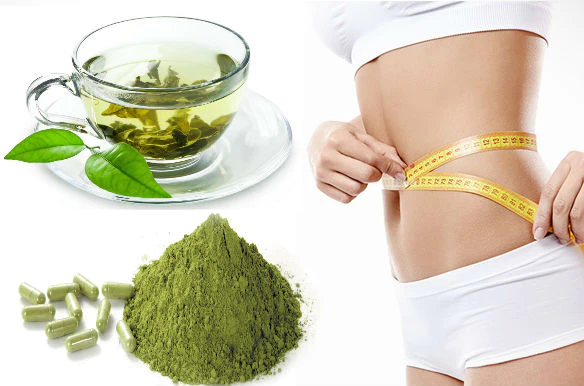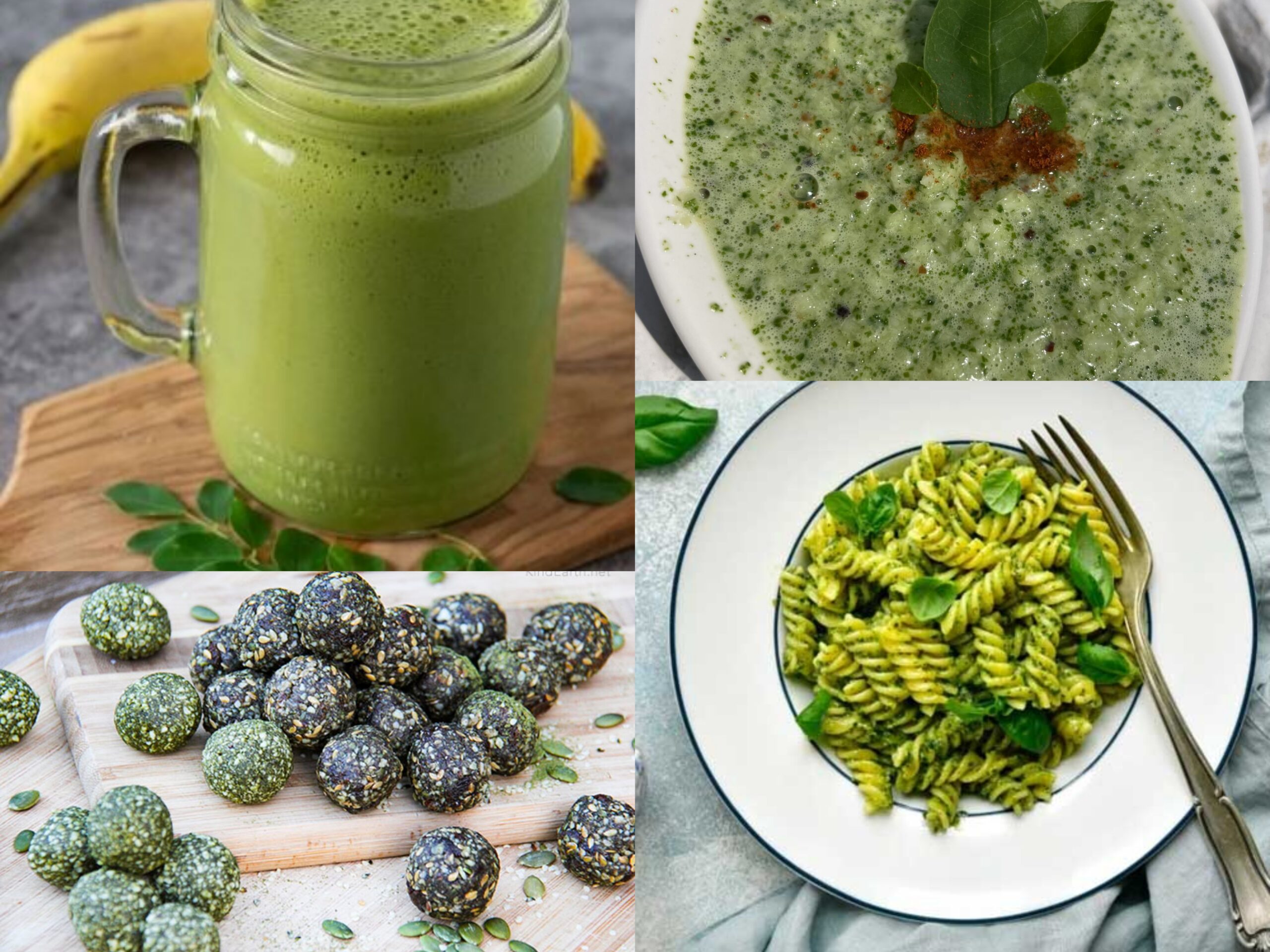Discover how PureLeaf Moringa supports weight loss through its rich nutritional profile, metabolism-boosting properties, and more. Learn the secrets to effective weight management with this natural supplement.
In the quest for effective weight loss solutions, the natural world often holds the most powerful keys. Among these, PureLeaf Moringa stands out as a remarkable supplement, offering a myriad of health benefits, including significant support for weight management. This detailed exploration delves into how PureLeaf Moringa aids in shedding those extra pounds, backed by nutritional science and real-life success stories.
Table of Contents
Introduction to PureLeaf Moringa and Weight Loss
PureLeaf Moringa, derived from the leaves of the Moringa Oleifera tree, is celebrated for its dense nutritional value and health-enhancing properties. But what makes it a potent ally in weight loss? The answer lies in its unique blend of vitamins, minerals, and bioactive compounds, which work synergistically to support metabolic health, reduce cravings, and optimize digestion.
Nutritional Profile of Moringa
Vitamins and Minerals
Moringa is an exceptional source of several essential vitamins and minerals, including:
- Vitamin A: Crucial for healthy vision, immune function, and skin health. Moringa leaves are rich in beta-carotene, a compound that the body converts into vitamin A.
- Vitamin C: A potent antioxidant that helps in the repair of tissues, aids in the absorption of iron, and supports immune health. Moringa leaves contain high levels of vitamin C, surpassing even oranges in some comparisons.
- Calcium: Important for bone health and muscular function. Moringa leaves offer a significant amount of calcium, beneficial for those who are lactose intolerant or seeking plant-based calcium sources.
- Potassium: Essential for heart and kidney function, potassium in Moringa helps regulate fluid balance and nerve signals.
- Iron: Crucial for the formation of hemoglobin and red blood cells, Moringa is a boon for individuals at risk of anemia, providing a plant-based iron source that’s easily incorporated into diets.

Protein and Amino Acids
Unlike many plants, Moringa contains all nine essential amino acids, making it a complete protein. This is particularly valuable for vegetarians and vegans, who may struggle to obtain complete proteins through their diet. Protein is vital for muscle repair, growth, and the production of enzymes and hormones.
Antioxidants
Moringa is loaded with antioxidants, which are compounds that fight free radicals in the body, reducing oxidative stress and preventing cell damage. Some of the notable antioxidants in Moringa include:
- Quercetin: Known for its ability to lower blood pressure and reduce inflammation.
- Chlorogenic Acid: Also found in high amounts in coffee, chlorogenic acid helps moderate blood sugar levels after meals.
- Beta-carotene: With its vitamin A activity, beta-carotene is important for vision and immune function.
Fiber
Moringa leaves are a good source of dietary fiber, which is essential for healthy digestion. Fiber helps to maintain bowel health, lower cholesterol levels, and control blood sugar levels by slowing the absorption of sugar into the bloodstream.
Omega-3 Fatty Acids
While less commonly discussed, Moringa seeds contain significant amounts of omega-3 fatty acids, which are essential fats the body cannot produce by itself. Omega-3s are crucial for brain health, reducing inflammation, and lowering the risk of heart disease.

How does PureLeaf Moringa support weight loss?
1. Boosting Metabolism
Moringa is packed with antioxidants such as quercetin and chlorogenic acid, which have been shown to boost metabolism and increase fat burn. A faster metabolism helps the body to burn calories more efficiently, contributing to weight loss.
2. High Nutritional Value
Rich in vitamins, minerals, and all nine essential amino acids, Moringa is highly nutritious. Its high nutrient density can help to satisfy dietary requirements with fewer calories, making it easier to maintain a calorie deficit without compromising on nutritional intake. This aspect is particularly beneficial for weight loss, as it ensures the body receives all the necessary nutrients while still allowing for weight reduction.
3. Appetite Suppression
The fiber content in Moringa can also aid in weight loss. Dietary fiber expands in the stomach, promoting a feeling of fullness and reducing the likelihood of overeating. By naturally suppressing appetite, Moringa can help reduce overall calorie intake, a key factor in weight loss.
4. Blood Sugar Regulation
Moringa contains chlorogenic acid, which helps in moderating blood sugar levels by affecting how the body processes sugar. By preventing large spikes in blood sugar, it can help to control cravings and minimize the risk of insulin resistance, which is often associated with weight gain and difficulty losing weight.
5. Reducing Inflammation
Chronic inflammation is linked to obesity and metabolic diseases. The anti-inflammatory properties of Moringa can help reduce systemic inflammation, thereby supporting weight loss and overall health. Reducing inflammation can also improve metabolic health, making it easier to lose weight and prevent weight gain.
6. Enhancing Energy Levels and Workout Performance
Moringa’s high iron content can help improve energy levels, which is crucial for anyone engaging in regular exercise as part of a weight loss program. Better energy levels can lead to more effective workouts, further supporting weight loss and muscle building.
7. Detoxification
Moringa has been associated with detoxifying effects, thanks to its ability to support liver function. A healthy liver is vital for the metabolism of fats, and by enhancing liver function, Moringa can support the body’s natural detoxification processes, aiding in weight loss and overall health

The Role of Antioxidants in Weight Loss
1. Enhancing Fat Metabolism
Certain antioxidants have been found to influence the body’s ability to metabolize fats. By improving the efficiency of fat metabolism, antioxidants can help the body use stored fat for energy more effectively, leading to weight loss. For instance, green tea extract, rich in the antioxidant epigallocatechin gallate (EGCG), has been shown to increase metabolic rate and fat oxidation.
2. Reducing Inflammation
Chronic inflammation is closely linked to obesity and can make losing weight more challenging. Antioxidants such as vitamin C, vitamin E, and beta-carotene can help reduce inflammation in the body, thereby potentially easing the weight loss process. Lowering inflammation can also improve metabolic health, further supporting weight management efforts.
3. Regulating Blood Sugar Levels
Antioxidants can play a role in regulating blood sugar levels, which is crucial for weight management. For example, the antioxidant chlorogenic acid, found in coffee and some fruits, can help lower glucose absorption in the intestines and inhibit the enzyme involved in the production of glucose in the liver. This regulation of blood sugar levels helps prevent spikes in insulin, which can lead to fat storage and weight gain.
4. Suppressing Appetite
Some antioxidants have been associated with appetite suppression. By modulating certain hormones and enzymes involved in hunger and satiety signals, antioxidants can help reduce the urge to overeat, leading to a lower calorie intake and weight loss. For example, the antioxidant resveratrol has been studied for its potential to influence leptin, a hormone that regulates hunger.
5. Improving Exercise Performance and Recovery
Antioxidants can enhance exercise performance and recovery by neutralizing free radicals produced during intense physical activity. This can lead to improved endurance, strength, and faster recovery times, encouraging more consistent and effective exercise routines, which are essential for healthy weight loss and muscle building.
6. Supporting Overall Health
Beyond direct effects on weight loss, antioxidants contribute to overall health by preventing oxidative stress and cellular damage, conditions that can lead to chronic diseases. A healthy body is more efficient at losing weight and maintaining a healthy weight, highlighting the indirect role of antioxidants in weight management.

Moringa’s Impact on Digestive Health
1. Rich Fiber Content
Moringa leaves are high in dietary fiber, which is essential for healthy digestion. Fiber adds bulk to the stool, facilitating smoother bowel movements and preventing constipation. By ensuring regularity, fiber in Moringa can help maintain a healthy digestive tract and prevent common digestive issues.
2. Anti-inflammatory Properties
The anti-inflammatory compounds found in Moringa, such as isothiocyanates, can help reduce inflammation in the gut. Inflammation is a common symptom of various gastrointestinal disorders, including Irritable Bowel Syndrome (IBS), Crohn’s disease, and ulcerative colitis. By mitigating inflammation, Moringa can contribute to alleviating discomfort and symptoms associated with these conditions.
3. Antibacterial Effects
Moringa possesses antibacterial properties that can combat pathogens responsible for digestive infections. Studies have shown that Moringa extracts can inhibit the growth of certain bacteria like Escherichia coli and Staphylococcus aureus, which are often implicated in foodborne illnesses. By controlling harmful bacteria in the gut, Moringa can support a healthy balance of gut flora, essential for proper digestion and nutrient absorption.
4. Supports Nutrient Absorption
The comprehensive nutrient profile of Moringa, including vitamins, minerals, and amino acids, not only nourishes the body but also supports the digestive system in absorbing these nutrients efficiently. For instance, Moringa’s high vitamin C content can enhance iron absorption, crucial for preventing anemia and ensuring optimal energy levels.
5. Promotes a Healthy Gut Microbiome
Emerging research suggests that Moringa may have a prebiotic-like effect, fostering the growth of beneficial gut bacteria. A healthy gut microbiome is critical for digestion, immune function, and overall health. Prebiotics serve as food for probiotics (beneficial bacteria), promoting a balanced gut ecosystem conducive to good digestive health.
6. Soothing Ulcers
Moringa has been traditionally used to treat stomach ulcers. Its leaves contain compounds that can help protect the stomach lining and reduce ulcer formation. By mitigating acidity and preventing damage to the gastric mucosa, Moringa can offer relief to individuals suffering from ulcers.

Incorporating PureLeaf Moringa into Your Diet
1. Moringa Powder in Smoothies
Adding a teaspoon or two of Moringa powder to your morning smoothie is perhaps the easiest way to enjoy its benefits. Moringa’s mild, earthy flavor pairs well with fruits like bananas, berries, and mangoes, creating a nutrient-packed drink that’s perfect for breakfast or an afternoon energy boost.
2. Moringa Tea
For a soothing, antioxidant-rich beverage, steep dried Moringa leaves in hot water to make Moringa tea. You can buy Moringa tea bags or use loose-leaf Moringa. Enjoy it plain or with a dash of honey and lemon for added flavor. Moringa tea can be a calming, nutritious way to start or end your day.
3. Sprinkling Moringa Powder on Meals
PureLeaf Moringa powder can be sprinkled over salads, soups, and stews, adding a nutritional punch without significantly altering the taste of your meals. It’s an effortless way to boost the nutrient content of your favorite dishes.
4. Moringa in Baking
Incorporate Moringa powder into your baking recipes to make your bread, muffins, and pancakes not only greener but healthier. Replacing a small portion of flour with Moringa powder in baked goods is a great way to enrich your diet with its healthful properties.
5. Adding Moringa to Sauces and Dressings
Mix Moringa powder into sauces, dressings, and dips to increase their nutritional value. Whether it’s a pesto, hummus, or vinaigrette, Moringa can blend seamlessly into these condiments, enhancing their health benefits without compromising taste.
6. Cooking with Moringa Leaves
If you have access to fresh Moringa leaves, they can be cooked similarly to spinach or kale. You can sauté them with garlic and olive oil for a healthy side dish or incorporate them into curries, omelets, and quiches for an extra dose of nutrients.
7. Moringa Capsules
For those who prefer a more convenient option, PureLeaf Moringa is also available in capsule form. Taking Moringa capsules is a quick and easy way to ensure you get your daily dose of its nutrients without having to prepare it as part of a meal or beverage.
Exercise and Moringa: A Winning Combination
Muscle Growth and Repair
The amino acids found in Moringa, including all nine essential amino acids, make it an excellent supplement for muscle growth and repair. After strenuous exercise, muscles need these amino acids to heal and grow stronger. Moringa’s protein content supports the body’s ability to repair muscle tissue and build lean muscle mass, essential for both strength training and endurance activities.
Anti-inflammatory Effects
Exercise, especially intense or prolonged physical activity, can lead to muscle inflammation and soreness. Moringa’s anti-inflammatory properties, thanks to compounds like isothiocyanates, can help reduce inflammation and alleviate post-workout soreness. This can lead to quicker recovery times and more consistent training sessions.
Antioxidant Protection
Moringa is rich in antioxidants such as vitamin C, vitamin E, and quercetin. These antioxidants combat oxidative stress caused by free radicals produced during exercise. By neutralizing these free radicals, Moringa can help protect cells from damage, reduce muscle fatigue, and improve recovery rates, allowing for more efficient and effective workouts.
Weight Management Support
For those exercising to lose weight or maintain a healthy weight, Moringa can be a valuable ally. Its ability to enhance fat metabolism, combined with its low calorie and high nutrient density, makes it ideal for supporting weight loss and management efforts. Moringa can help curb appetite and cravings, making it easier to stick to a healthy diet and achieve weight loss goals.
How to Incorporate Moringa with Exercise
- Pre-Workout: Consume Moringa in the form of a smoothie or tea approximately 30 minutes before exercising to boost energy levels and endurance.
- Post-Workout: Add Moringa powder to a protein shake or consume it in capsule form after working out to aid in muscle recovery and reduce inflammation.
- Daily Supplement: Including Moringa in your daily diet, regardless of workout schedules, can provide ongoing support for energy levels, muscle repair, and overall wellness.

FAQs
Can Moringa help with weight loss?
Yes, Moringa can support weight loss efforts due to its rich nutrient profile, including vitamins, minerals, antioxidants, and fiber. Its components can help boost metabolism, reduce appetite, and increase energy levels, aiding in weight management when used in conjunction with a healthy diet and exercise.
How should I take Moringa for best results?
Moringa can be consumed in various forms, including powder, capsules, tea, and fresh leaves. For best results, incorporate it into your daily diet by adding Moringa powder to smoothies, soups, and salads, drinking Moringa tea, or taking capsules as directed. Consistency is key to experiencing its full benefits.
Are there any side effects of taking Moringa?
Moringa is generally considered safe for most people when consumed in food amounts. However, consuming Moringa in large doses or in supplement form might cause digestive issues like diarrhea or nausea in some individuals. Pregnant and breastfeeding women should avoid taking Moringa due to the lack of research on its safety in these conditions.
Can Moringa improve athletic performance?
Moringa may enhance athletic performance by improving energy levels and aiding in muscle recovery. Its high antioxidant content can help reduce inflammation and muscle soreness after workouts, while its amino acids support muscle repair and growth.
Is Moringa beneficial for people with diabetes?
Moringa has been shown to have a stabilizing effect on blood sugar levels, making it potentially beneficial for people with diabetes. Its chlorogenic acid content can help lower blood sugar levels after meals, though individuals with diabetes should consult with a healthcare provider before adding Moringa to their diet.
How does Moringa affect digestion?
Moringa can positively impact digestion thanks to its fiber content, which promotes regular bowel movements and a healthy gut. Its anti-inflammatory properties may also help reduce inflammation in the digestive tract, improving overall digestive health.
Can Moringa be used to improve skin health?
Yes, Moringa is beneficial for the skin due to its high content of vitamins A and E, both of which are vital for healthy skin. Vitamin A helps in the production and repair of skin cells, while Vitamin E provides antioxidant protection against free radical damage.
How long does it take to see benefits from taking Moringa?
The time it takes to see benefits from Moringa can vary depending on the individual and their health goals. Some people may notice improvements in energy levels and digestion within a few days, while other benefits, like weight loss or improved skin health, may take several weeks or months of consistent use.
Can Moringa replace multivitamins?
While Moringa is rich in vitamins, minerals, and antioxidants, it should not be relied upon as the sole source of all necessary nutrients. It can complement a healthy diet and, for some, may reduce the need for certain supplements, but it’s important to ensure a balanced intake of nutrients from a variety of sources.
Is Moringa safe for everyone?
Moringa is safe for most people when consumed in moderation. However, individuals with specific health conditions, pregnant and breastfeeding women, and those on medication should consult with a healthcare professional before adding Moringa to their diet to avoid potential interactions or side effects.
Conclusion: Your Path to Weight Loss with PureLeaf Moringa
In conclusion, PureLeaf Moringa offers a natural, effective path to weight loss. Its rich nutritional profile, combined with metabolism-boosting and appetite-suppressing properties, makes it a valuable addition to any weight management regimen. Embrace Moringa as part of your journey to a healthier, happier you.










